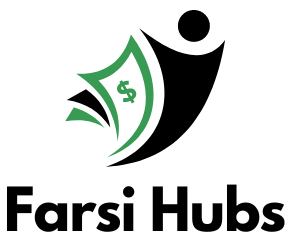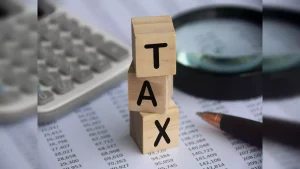Many people find taxes scary and difficult to understand. There are many myths and false beliefs about tax-saving strategies that lead people to make choices based on incorrect information. In this article, we dispel some common myths about tax savings and look at what you can save on taxes.
1. You Need a Pro to Save Taxes
People often think they need a tax expert to help them save taxes. A tax expert can give you good advice and help you get the most out of your tax plan, but there are many ways people can save on taxes without paying an expert. Investing in tax-saving options such as retirement accounts, health savings accounts (HSAs), and tax-efficient methods can significantly reduce your tax bill.
2. Only Rich People Get Tax Deductions
Another misconception is that tax breaks only help people who have a lot of money. Anyone, no matter how much money he or she earns, can get a tax break. Regardless of your income level, general benefits such as mortgage interest, charitable contributions, and college expenses can help lower your taxable income. To get the most tax relief, research all the benefits and credits available to you.
3. Tax Avoidance Is Illegal
Many people believe that tax evasion is illegal, which prevents them from using legal ways to save taxes. Tax avoidance means doing things that lower your taxes, such as using tax credits, deductions, and other government incentives. It is important to understand the difference between legal tax avoidance and illegal tax evasion, which involves deliberately lying to avoid taxes.
4. Tax-saving investing is complicated
Some people think that investing in tax-saving strategies is difficult and requires a lot of financial information. Some tax savings strategies can be complex, but most are easy for the average taxpayer to understand and use. For example, putting money into a traditional IRA or 401(k) plan can immediately save you money on taxes because these investments are typically tax deductible.
What Works: Knowing Your Options
The best way to save on taxes is to understand your options and use the tools available to you. Here are some proven ways to reduce your taxes:
Maximize your retirement contributions: Contribute as much money as possible to your retirement plan, such as an IRA or 401(k). These payments reduce taxable income and allow your money to grow tax-free until you withdraw it.
Use tax-efficient investments: Put money into tax-efficient assets like index funds or municipal bonds, which generate the least tax revenue compared to other investments.
Take advantage of tax credits: Investigate tax credits, such as the Earned Income Tax Credit (EITC) or the Child Tax Credit, to immediately reduce your tax bill.
Itemize your expenses: If your itemized expenses exceed the standard deduction amount, you may need to do so to get the maximum tax deduction.
Plan for Health Care Costs: If you qualify, plan for health care costs by putting money into a health savings account (HSA). If you use an HSA to pay for qualified medical expenses, the amounts you withdraw are tax-free.
By using these strategies and staying abreast of changes in tax rules, you can bust tax-saving myths and make the most of your efforts to save money on taxes.
Conclusion
All in all, to make smart financial choices, it’s important to understand the truth behind common tax-saving myths. Calculating your taxes can be difficult, but saving taxes in legal ways and staying informed can save you a lot of money in the long run. Keep in mind that planning your taxes is something you need to do year-round, and talking to a tax professional can help you get advice specific to your situation. To make the most of your tax savings and financial success, don’t let myths and false beliefs hold you back.
FAQs
1. What is a tax deduction? How do they work?
Expenses or donations that reduce your taxable income and therefore your overall tax liability are called tax deductions. Mortgage interest, charitable donations, and some medical expenses are common claims. You can take the standard deduction or claim your expenses by reporting them on your tax return.
2. What is the difference between paying no tax and paying too little tax?
Tax evasion means using legal means to pay as little tax as possible, such as investing in things that make you money while lowering your tax bill. Tax evasion, on the other hand, is illegal and involves knowingly avoiding taxes by misreporting income or fabricating deductions.
3. Are contributions to a savings account tax deductible?
You can often get a tax break by putting money into certain retirement accounts, such as standard IRAs and 401(k) plans. These contributions can reduce your taxable income for the year, resulting in immediate savings on your taxes. But Roth IRA contributions are not tax-deductible. However, when you leave, you can withdraw the money tax-free.
4. Explain what a tax credit is and how it differs from an exemption.
A tax credit is a direct reduction in the amount of tax you owe, equal to the amount of the credit. On the other hand, the tax exemption reduces your taxable income, which can lower your tax bill depending on your tax rate. Tax credits are more useful than rebates because they reduce the amount of tax that must be paid.
5. Are there ways small business owners can save on taxes?
Yes, there are many ways small business owners can save on taxes, such as deducting business expenses, setting up a retirement plan such as a SEP-IRA or SIMPLE IRA, or using tax benefits to hire employees or certain invest in industries. Talking to a tax professional who understands small business taxes can help you come up with customized ways to save the most money.

